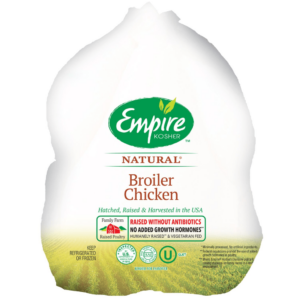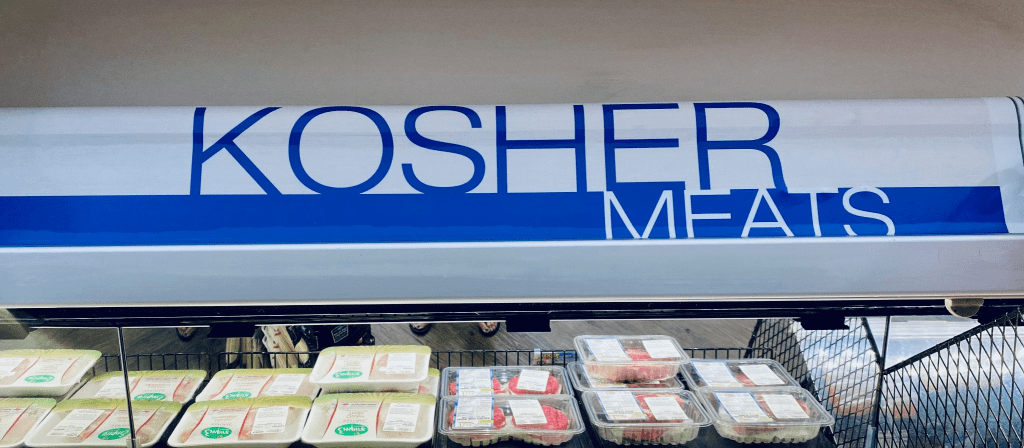The perception of kosher certification as an assurance of higher quality, healthfulness, safety, and animal welfare is widespread, but despite these expectations, a kosher symbol on food packaging does not guarantee any of these outcomes—especially when it comes to animal products. Most kosher-certified animal products—and generally all of the ones found in grocery stores— come from the same factory farms that raise the vast majority of non-kosher animals for food.

We already know that in the United States, the number one reason for purchasing kosher-certified food is consumer belief in a superior product. In 2009, research found that people buy kosher because they think it is of higher quality (62 percent), healthier (51 percent), and safer (34 percent) than non-kosher food.((Mintel Consumer Intelligence. 2009. 3 in 5 Kosher Food Buyers Purchase for Food Quality, Not Religion (press release, February 17th, 2009). https://www.mintel.com/press-centre/food-and-drink/3-in-5-kosher-food-buyers-purchase-for-food-quality-not-religion)) But kosher labels are applied amidst a growing trend of unregulated, meaningless, humanewashing claims such as “humanely raised” and “hormone-free,” some of which are used by kosher companies themselves to attract conscientious buyers who are looking for an explicit message of better animal treatment. Survey research conducted in 2017 showed the Jewish population is more likely than the general population to purchase animal products labeled “humane.”((Animal Tracker Year 10 Crosstabs, 2017, Faunalytics: https://drive.google.com/drive/folders/1tzr21r8jNCVYlTTT6vYhP2FbvW8xvkpt?usp=sharing)) As a result, Jewish kosher consumers are doubly deceived: by the faulty notion of kosher-certified as better, and by labels and claims that are meaningless for animal welfare.
What about “eco-kosher” or “ethical kashrut?”
Although community-born ideas such as “eco-kosher” and “ethical kashrut” have become popular in liberal Jewish circles and have the potential to guide a conversation about kosher in the right direction, these terms are only conceptual, not enforced practices—nothing about a kosher label indicates more responsibly operated business practices when it comes to the handling of environmental pollution, protection for workers on farms and slaughter plants, or the level of threat posed to public health. If anything, the very idea that Jewish communities need to come up with a qualified version of kashrut points to the inadequacy of the kosher certification to meet (at least many) Jewish consumers’ expectations.
Support the movement to call out kosher humanewashing.




